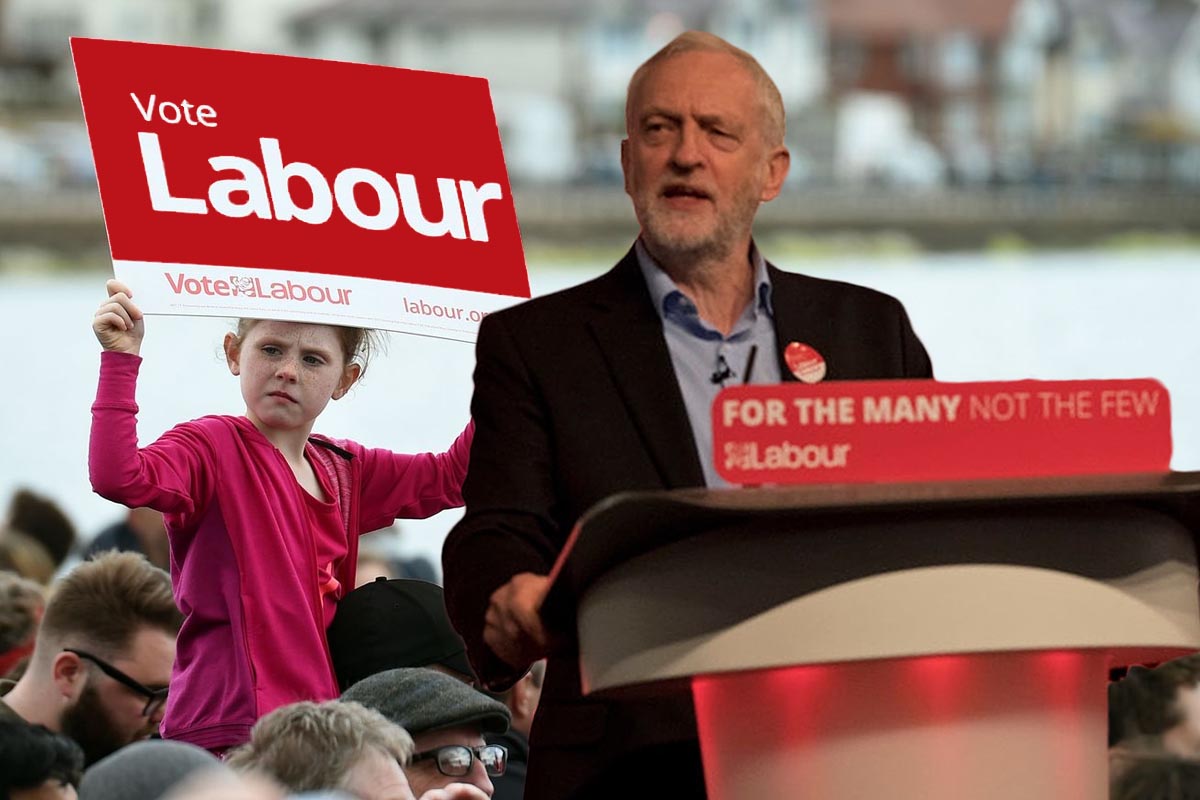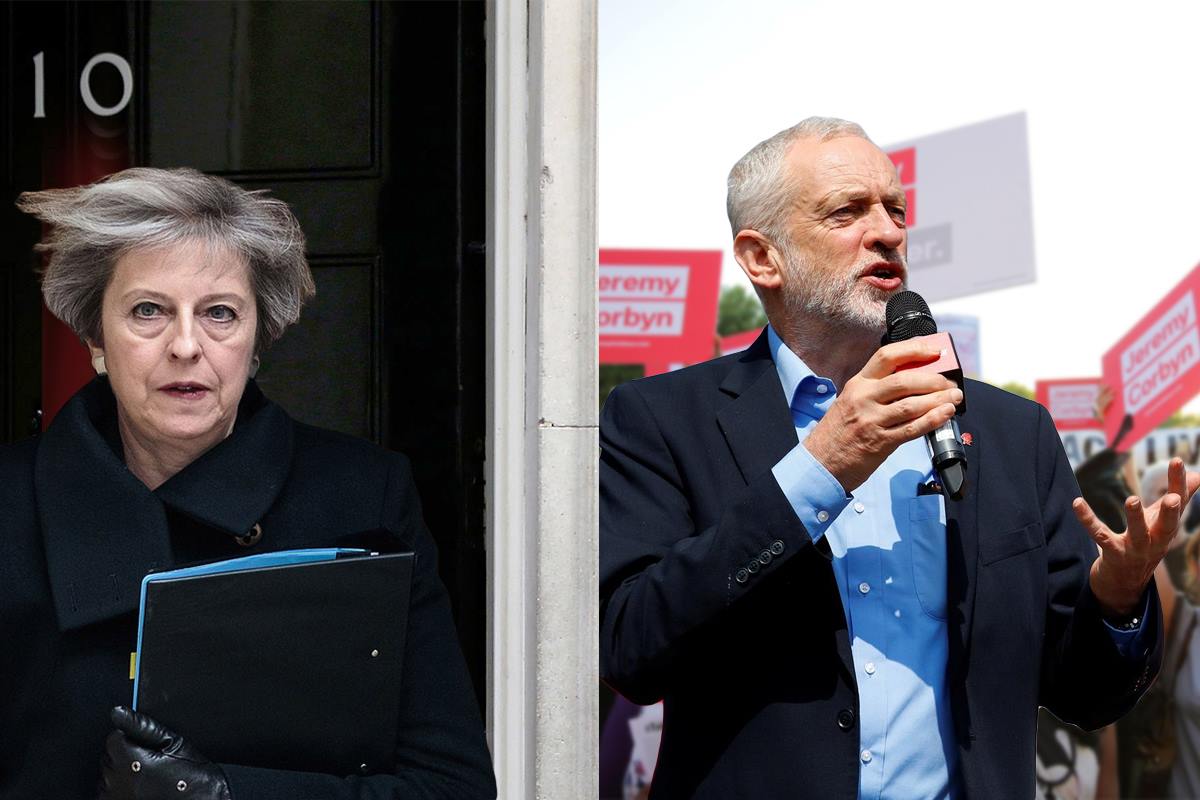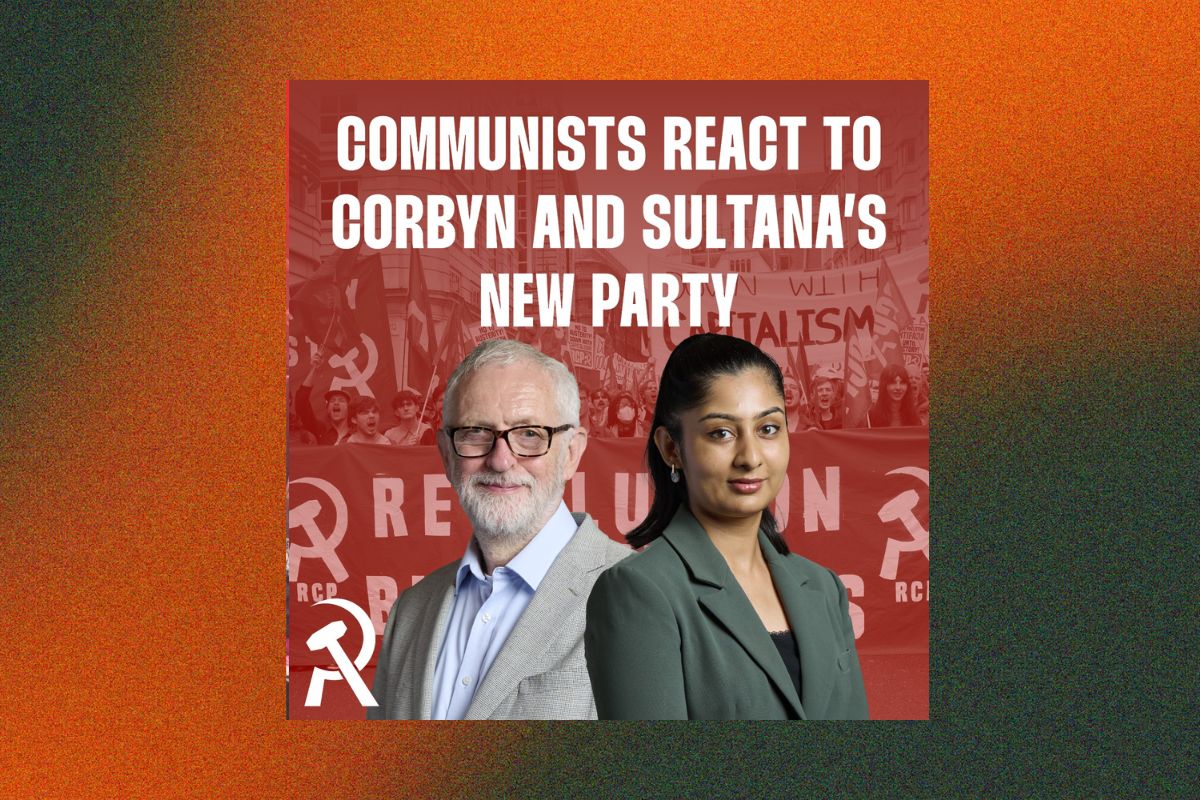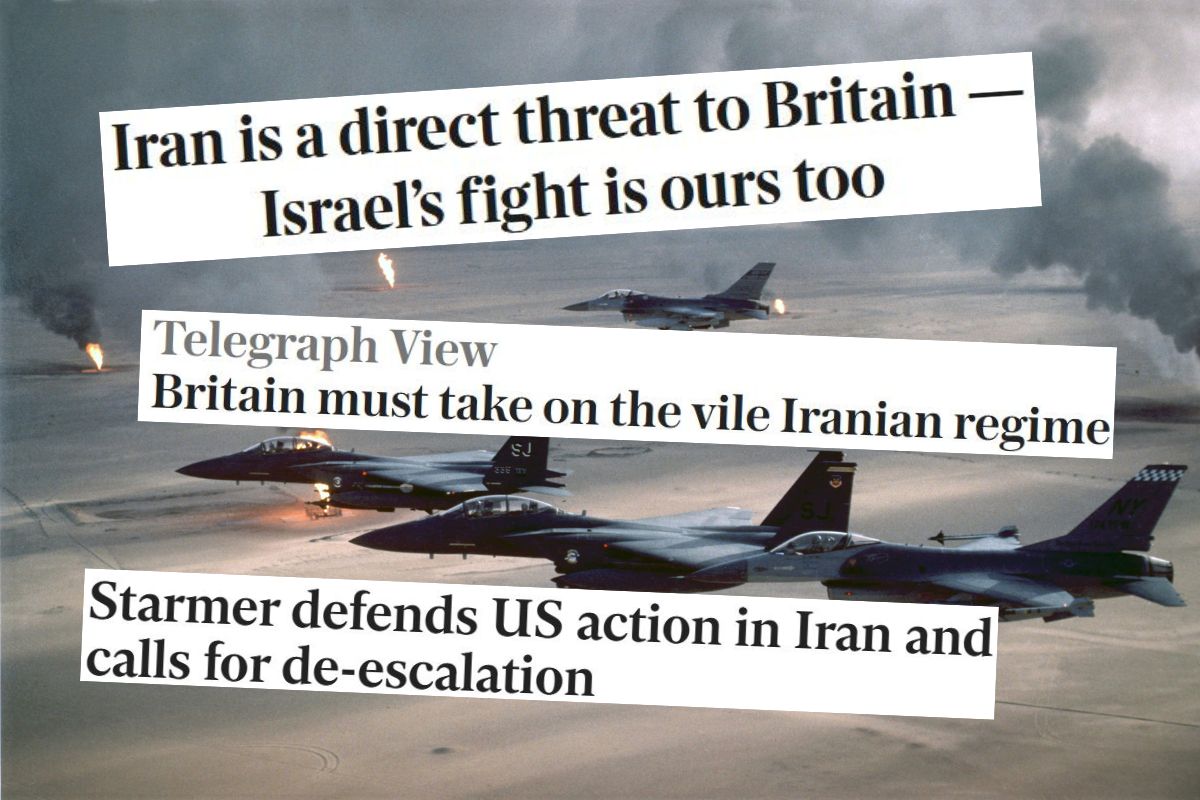The neverending Brexit saga is taking its toll on both of Britain’s major political parties, exposing the faultlines and widening the rifts. The question is not if there will be splits, but when.
With the Brexit clock ticking, big business is getting increasingly panicked at the prospect of a no-deal departure from the European Union. “Businesses risk being hung out to dry,” remarked Adam Marshall, director-general of the British Chambers of Commerce, a leading voice of UK bosses.
The ruling class is growing weary of Theresa May and her can kicking antics, which only add to uncertainty and instability facing British capitalism.
The problem for the Prime Minister is that she has no other option but to prevaricate and filibuster. EU negotiators in Brussels are adamant that no more concessions will be forthcoming. Back at home, meanwhile, hardline Tory Brexiteers are also stridently opposed to any deal containing the ‘Irish backstop’, which they claim threatens the UK’s national sovereignty.
Business leaders want assurances that Britain will not crash out of the EU when the 29th March deadline arrives. But this requires an alternative – and Parliament has repeatedly proven its paralysis when it comes to voting through anything that could avoid the default no-deal option.
In the meantime, it is becoming ever more likely that May will seek to buy herself some time by asking for an extension to Article 50. This will do nothing to resolve the current stalemate, but will only provide more time for Westminster’s wounds to fester.
Red lines
 Hopes were raised in Europe earlier this month when Jeremy Corbyn put forward his own proposal for a soft Brexit containing five demands.
Hopes were raised in Europe earlier this month when Jeremy Corbyn put forward his own proposal for a soft Brexit containing five demands.
One of these was for a commitment to match EU legislation on workers’ rights and environmental regulations. This is something Theresa May herself has already explored in talks with trade union leaders, in an attempt to woo Labour MPs to support her deal. Such promises ring hollow from the lips of the Conservatives, however, as their whole raison d’être is to attack the working class on behalf of the bosses and their profits.
The main stumbling block to any agreement between May and Corbyn, however, is Labour’s demand for a customs union. May has ruled out conceding to this; from the outset it has been one of her “red lines” in negotiations with the EU. For the Tory leader to capitulate on this now would be a red rag to the Brexiteer bulls in her party.
The Prime Minister therefore faces a dilemma: go for a soft Brexit and wreck her party; or facilitate a train-crash Brexit and wreck British capitalism.
General election now!
 With no way out of this impasse, anything could still happen. Corbyn, for example, has stated that Labour might yet back a second referendum. But this is unlikely: whilst it would placate outspoken Remain-supporting Labour MPs on one side, it would infuriate an equal (or greater) number of Labour MPs in Leave-voting constituencies on the other.
With no way out of this impasse, anything could still happen. Corbyn, for example, has stated that Labour might yet back a second referendum. But this is unlikely: whilst it would placate outspoken Remain-supporting Labour MPs on one side, it would infuriate an equal (or greater) number of Labour MPs in Leave-voting constituencies on the other.
May, meanwhile, might be tempted to go for the option of a general election, especially given recent polling figures which indicate that the Tories have a seven-point lead over Labour.
But whilst the degenerate capitalists and their equally degenerate political representatives have famously short-memories, none of them will have forgotten the calamitous result of the 2017 snap election, where the Prime Minister managed to throw away a Conservative majority despite going into the campaign with a 20-point advantage in the polls.
This painful experience will no-doubt have scarred Theresa May for life, making her think twice about calling another early election, lest it put Jeremy Corbyn in 10 Downing Street.
For Corbyn and Labour, a general election campaign represents favourable terrain; an opportunity to bring out the class-based issues – on housing, healthcare, public services, and wages – that constitute the real divide in society: between ‘the many’ and ‘the few’.
But we cannot wait for May to call an election. Instead of horse-trading with the Tories, the leaders of the labour movement should be mobilising workers and youth to kick out this decrepit government and elect a socialist Labour government to power. Only through a mass movement on the streets can we break the current Brexit deadlock and force a general election.
Blairite saboteurs
 On the other side of the aisle, Corbyn faces threats of splits from his own backbenches.
On the other side of the aisle, Corbyn faces threats of splits from his own backbenches.
From the moment Corbyn stood to be Labour leader, it was evident that there were two mutually antagonistic tendencies within the Labour Party: on the one side, the Blairite saboteurs in Parliament; on the other, the mass of workers and youth who have flooded in the party to support Corbyn and his left-wing programme.
Now a layer of right-wing Labour MPs are preparing to breakaway, with figures such as Luciana Berger refusing to deny their intention to split. Nominally this is over the issue of Brexit, with the Blairites being the most vocal proponents of a so-called ‘People’s Vote’ to overturn the 2016 referendum result.
No doubt these Labour right-wingers sincerely want to Remain in the European Union – primarily to stay in the Single Market and protect the profits of the banks and big business. But this issue is only a proxy for a whole host of other questions that deeply divide the Labour Party.
Not only do the Blairites support the capitalist EU, but they are also the most consistent defenders of British imperialism: supporting the war in Iraq in 2003; the bombing of Syria in 2015; and now Trump’s coup in Venezuela.
And, of course, these same ladies and gentlemen are also the leading voices in the hysterical anti-Semitism smear campaign being waged by the Labour right wing and the press, which is constantly being dredged up and used as a stick to beat Corbyn and the left with.
No return to the past
 Brexit could therefore act as the catalyst to spark schisms in both major political parties, reshaping the British political landscape forever.
Brexit could therefore act as the catalyst to spark schisms in both major political parties, reshaping the British political landscape forever.
“Both parties are closer to splitting than at any time in the past 30 years,” notes the Blairite commentator Andrew Rawnsley in the Observer (10th February 2019). “In fact, they are already split. The relevant questions are when, how and in what numbers actual breakaways will start to happen.”
“It goes without saying,” Rawnsley continues, “that Brexit has driven a wedge through the Conservative Party.”
“Explaining the humiliations and contortions that Theresa May has undergone over the past 32 months, some of her friends report that her overriding objective has been to avoid going down in history as the leader who turned Tory divisions over Europe into a formal split. She is now in the last gasp of her attempts to find a Brexit deal that does not blow up her party.”
But the civil war raging inside the Conservative Party will not end anytime soon. After all, attempts to appease the Brexiteers will only antagonise the moderates, and vice-versa. As Rawnsley notes:
“A group of centrist Conservative MPs has publicly declared that they could not remain members of their party if the leadership is acquired by Boris Johnson, Jacob Rees-Mogg or another of the English nationalist faction most popular with Tory activists.”
As a reliable voice of the liberal establishment, Rawnsley longingly yearns for a return to the ‘good old days’ when big business could choose between two reliable ‘centre ground’ parties to defend their interests in Westminster.
But those days are long gone, never to return. A decade of capitalist crisis and austerity has destroyed support for the so-called ‘centre’ – not just in Britain, but internationally. Politics has been sharply polarised in all countries, to the left and the right. The ruling class have lost control of their traditional political representatives: the Conservatives, now in thrall to the “swivel-eyed loons” of the Tory rank and file; and the Labour Party, reclaimed by the Corbyn movement.
For a socialist Labour government
 Grassroots Labour members have rightly had enough of the Blairites and their shenanigans – hence the no-confidence motions that have been passed by local parties against right-wing Labour MPs such as Chris Leslie and Gavin Shuker, amongst others.
Grassroots Labour members have rightly had enough of the Blairites and their shenanigans – hence the no-confidence motions that have been passed by local parties against right-wing Labour MPs such as Chris Leslie and Gavin Shuker, amongst others.
Where members have attempted to hold their representatives to account, however, they have been met with wails of resistance from the Labour right wing and their media mouthpieces – as seen during the recent attempt by members in Liverpool Wavertree CLP to reject local Labour MP Luciana Berger.
Despite their threats to split away now, however, it is likely that the bulk of Blairites will bide their time. Rather than leave now, they will wait until a Corbyn Labour government has come to power. At the appropriate moment, the ruling class will give their bugle call, and the Labour right wing will act like a Trojan horse, designed to attack from the inside.
We cannot let the Blairites split away on their own terms, damaging the party at the point of their choosing. Instead, we must show these careerists the door in advance of any general election.
This is why we need mandatory reselection: to elect workers’ MPs who will take a worker’s wage, and who will argue and campaign for bold socialist policies. In place of these right-wing wreckers, we need genuine class fighters – those loyal to the working class and the cause of socialism.






